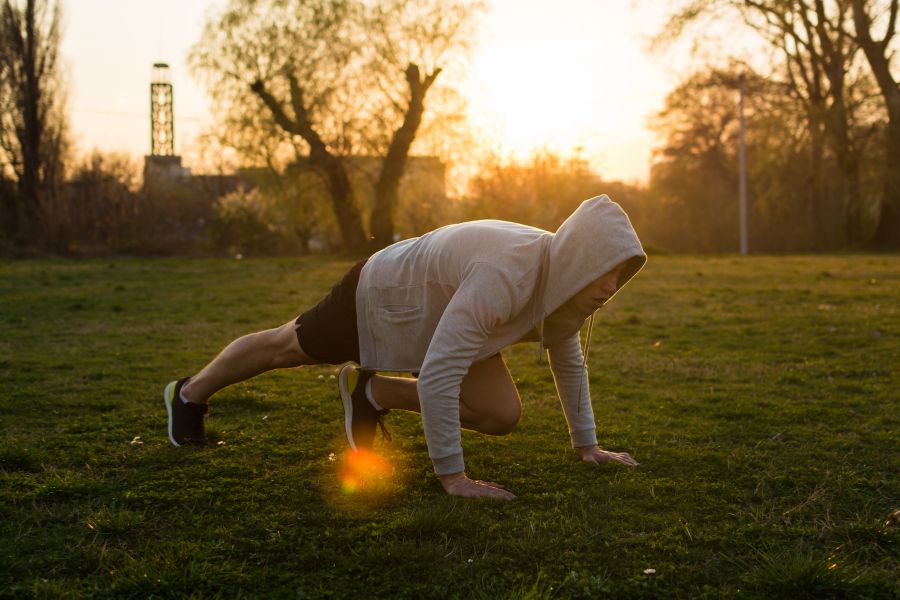The age-old debate over whether mornings or evenings are the best time to work out has been around for decades.
Some swear by sunrise sweat sessions, while others insist they perform better after the day winds down.
But when it comes to weight loss and exercise performance, does timing really matter?
We asked health coaches, trainers, and medical professionals to share their insights…and while their perspectives vary, one theme came through loud and clear: consistency matters more than the clock.
Consistency Matters More Than Timing

I help entrepreneurs and high performers optimize energy, longevity, and weight loss.
I’ve found that the most important factor in workout timing is consistency. Any time of day they can reliably train is the best time for results.
That said, there are some nuances worth considering….Meal timing matters, since training too close to bedtime can raise body temperature and interfere with deep sleep, which is critical for recovery and fat loss.
The choice between fasted and fed workouts is also individual: while some people thrive training fasted, many feel and perform better when fueled. In those cases, eating afterward is especially important to blunt prolonged cortisol elevation and take advantage of heightened insulin sensitivity — something particularly beneficial for women, who often respond better hormonally to fed training.
Finally, circadian rhythms can influence performance, since strength and body temperature typically peak in the afternoon, offering a slight edge later in the day.
Nick Urban, Functional Health Practitioner, Integrated Movement Scientist, & Performance Coach, Outliyr
Align Workouts With Your Natural Energy Peaks

In my experience, workout timing matters less for weight loss than people think—it’s consistency that makes the biggest difference.
Whether you exercise in the morning or evening, the key is choosing a time you can stick with long-term.
Weight loss comes down to overall activity, nutrition, and recovery, so the “best” time is the one that fits your lifestyle.
For performance, though, timing can play a role. Some people feel stronger and more energized later in the day, while others perform best first thing in the morning.
I’ve seen clients improve their results simply by aligning their workouts with when they naturally feel most alert and motivated.
I recommend experimenting with both morning and evening sessions to see when your body feels its best. Then commit to that time as part of your routine. The more you enjoy and can consistently show up for your workouts, the better your results will be.
Taylor Gardner, Health Coach, Gardner Therapy Group
Morning Workouts for Fat Burning and Stamina

Morning workouts are generally fine for most people because they are fresh out of bed with energy and more stamina.
They’re great for weight loss because you’re coming off a fast overnight, and the body burns more fat.
They’re also good for performance because the body’s cortisol level peaks around this time.
Evening workouts can come with less stamina and reduced performance, but it’s not clear-cut.
Some people have time to rest before evening exercises, but I always recommend morning exercises.
Austin Anadu, Medical Doctor, AlynMD
Honor Your Body’s Rhythms for Optimal Exercise

In my experience, the timing of a workout, like everything in life, is all about energy.
The quality and level of our energy naturally shift throughout the day.
By honoring these rhythms, we can create a more harmonious and effective daily routine.
While the specific timing – morning or evening – may not solely determine weight loss or performance, aligning movement with your body’s natural energy levels can significantly enhance the experience.
Observe how your energy shifts throughout the day and pay attention to how you feel before and after moving your body. This awareness becomes the true teacher – far more reliable than the clock.
Lucia Ferrario, Life Coach & Meditation Teacher, The Munay Journey
Choose the Time That Fits Your Lifestyle

In my experience, workout timing doesn’t make or break weight loss; it’s consistency that counts more than the clock.
The body will adapt to whatever routine you can stick with.
That said, performance can vary: some people feel stronger in the morning, while others hit their stride later in the day.
Personally, I’m a night person. I used to want to work out at night, but because I also like to work at night, I’d get caught up in projects and miss my workout window.
What finally worked was shifting to mornings. Now, I go right after I drop my daughter off at school, before starting my workday, and I’m hitting 3-4 workouts a week consistently.
That’s what I recommend to my clients too: choose the time when you’re least likely to get derailed, not just the time that sounds ideal.
The “best” time is the one you’ll actually follow through on.
Ariana Hakman, Founder and Chief Operating Officer, LunaFit
Research: Morning Exercise Linked to Lower BMI
In my experience, while the most significant determinant of both weight loss and output is consistency – i.e., going regularly – it is also evident that morning workouts (at least between 7 and 9 am) are related to lower body-mass index and smaller waist circumference.
This most likely reflects more favorable food choices and eating patterns, as well as better energy balance, in morning exercisers.
All that said, studies also stress that it is more important to keep people active than to focus on the time of exercise.
Therefore, I would recommend to my clients that they pick a workout time that would be suitable for their routine and energy levels.
Assuming you want to lose weight and mornings suit you, going for the early shift may put you one step ahead. However, if mornings are not your thing, exercising in the evenings or afternoons is just as good an option too – because consistency is key, after all.
Holly Dufresne, Program Coordinator, Healthy Outlook Inc.
Conclusion
So, is morning or evening the best time to work out? The experts agree: there’s no single “right” answer.
Morning workouts may offer advantages like fat burning, discipline, and a positive start to the day.
Evening workouts can take advantage of peak strength, flexibility, and body temperature.
But in the end, the best time is the one you can stick to. Consistency — not the clock — drives long-term results.
Pay attention to your lifestyle, energy levels, and daily rhythm, and choose a time that allows you to train regularly.
Whether you’re chasing weight loss, performance, or simply better health, showing up for your workouts matters far more than when you do them.

Leave a Reply